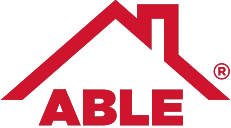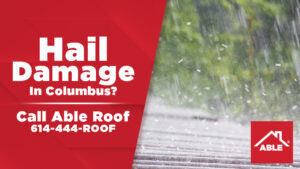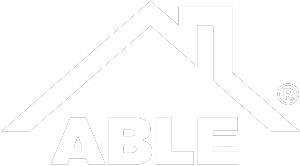Spring has sprung, and while you may be rejoicing about the ensuing warm weather, don’t forget that your Columbus roofing system still needs a coat – a roof coating that is. Roof coatings are essential because they protect existing surfaces, enhancing the lifespan of your roof. Longer lifespans will save you a lot of money associated with roof replacement and maintenance costs.
Coatings with reflective surfaces reduce temperatures at and below the roof’s surface and also reflect solar radiation. This not only lowers cooling loads and reduces heat islands in urban areas; it also results in energy savings—which means a cost savings for you. Additionally, roof-preserving coatings help organizations meet sustainability goals by reducing waste sent to landfills during re-roofing projects.
Over the last half-decade, maintenance and engineering managers have made great strides to improve the roof coatings available for your roof system. There are myriad of new products and formulations, in addition to more traditional roof-coating options. Read on to find out which coatings are best for your Columbus roofing system.
Product Selection for Your Columbus Roofing System is Key
Building managers who integrate fluid-applied, weather-resistant barriers and fluid-applied roofing systems must ensure the materials are compatible to create a continuous weather barrier. This process of choosing the most appropriate roof coating has become more challenging due to the increase in choices and performance criteria. To make this process more efficient, building codes are evolving in response to product availability and new research.
Fortunately, products that meet specific standards typically display that information on the label. Managers should look for such markings when evaluating a product to meet a specific need. Some markings indicate whether a coating meets specific standards or has the approval of certifying testing organizations. Among the important standards is the American Society for Testing and Materials (ASTM) D 6083. That standard measures the coating tested against specific physical performance and physical characteristics for viscosity, elongation, tensile strength, accelerated weathering after exposure to 1,000 hours of testing, permeability, water swelling, adhesion, tear strength, and low-temperature flexibility. If met, this comprehensive set of standards should lead managers to an excellent product for their Columbus roofing system.
The condition of your existing roof should also play a key role in your product selection. If the existing roofing system is failing, for instance, a high-performance roof coating with fabric reinforcement might be the most appropriate choice. If the system is functional, managers must identify project goals. For example, if high reflectivity and potential energy savings are important, then the reflectivity rating or solar reflective index of the coating will be a defining factor during specification.
Consider Waterproofing and Permeability for Your Columbus Roofing System
Creating a waterproof barrier is the primary objective of any Columbus roofing system. Fluid-applied, weather-resistant barriers will assist in this process of weatherproofing, which is vital for prolonging and protecting your Columbus roofing system. These barriers prevent the roof’s intake of water, while allowing the expulsion of water vapor. Replacing sheet goods, these highly permeable, fluid-applied barriers act as air barriers to reduce air leaks and improve energy efficiency.
Traditional roof coatings, such as acrylics, asphalt cutbacks and asphalt emulsions should not be used to provide primary waterproofing for a Columbus roofing system. This is because they are usually more permeable than products that qualify as standalone, fluid-applied roofing membranes. Also, managers should not expect these traditional products to repair leaks without adding supplemental materials and detailing.
On the other hand, high-performance membrane products, such as liquid polyesters, polymethyl methacrylates and hot-fluid-applied rubberized asphalt are standalone roofing and waterproofing systems if installed over an approved roof deck with proper UV protection. Building managers can also specify polyurethanes, silicones and some polymer-modified bitumen products as a primary roofing or waterproofing layer, but they do have limits and cannot fix leaks if installed over badly deteriorated Columbus roofing systems.
Choosing a Manufacturer
Once managers have identified the most ideal product for the Columbus roofing system coating, they must then select a manufacturer. The manufacturers of high-performance coatings often provide lists of trained and approved installation contractors. Additionally, a manufacturer’s technical representatives can provide site observation and quality-control inspections. Warranty considerations are also important, so managers should carefully review warranty limitations and exclusions.
Now You’re Ready for Installation
Proper surface preparation, application temperature, and temperature trend are three important installation parameters to consider.
For fluid-applied roofing or waterproofing over concrete, the temperature should be within the range approved by the manufacturer. Columbus roofing installers should apply these coatings over concrete later in the day, when temperatures are decreasing but remain above the dew-point temperature. Decreasing temperature will prevent moisture within the concrete from rising, which can create blisters or pinholes in the coatings.
However, some roof coatings are water-soluble while curing, so dew in the evening can cause problems if the product has not fully dried. Manufacturers of water-soluble coatings recommend installing the product in the morning, after the surface of existing roofing has dried and temperatures are rising.
With proper planning, quality control during installation, and effective maintenance, applying a roof coating or liquid-applied roofing membrane can have numerous benefits. It can extend an aging Columbus roofing system’s service life, save energy, reduce operating and maintenance costs and contribute to the organization’s overall sustainability goals.
Columbus Roofing Contractors
ABLE ROOFING Columbus is the largest residential and commercial roofing company in Central Ohio. With Columbus roofing contractors highly skilled in all areas of roofing, we can assist you with all of your roof coating needs. Call us at 1-614-444-ROOF with any questions, or to schedule a free estimate. Click to learn more about our Columbus roofing services.







